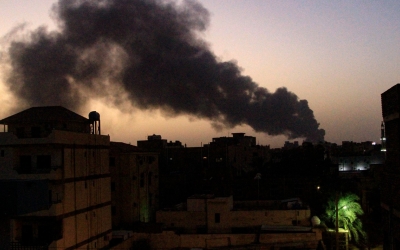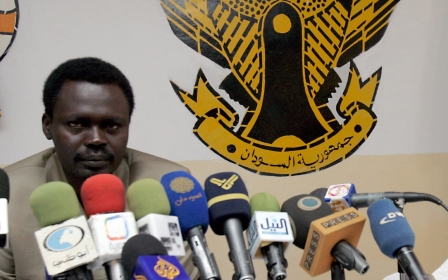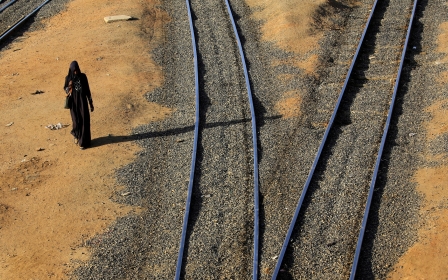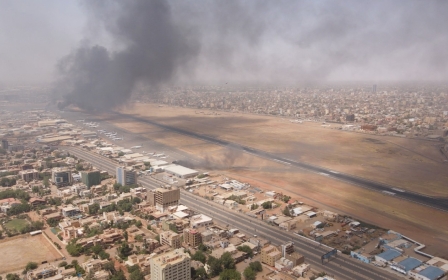Sudan army halts ceasefire talks in Saudi Arabia
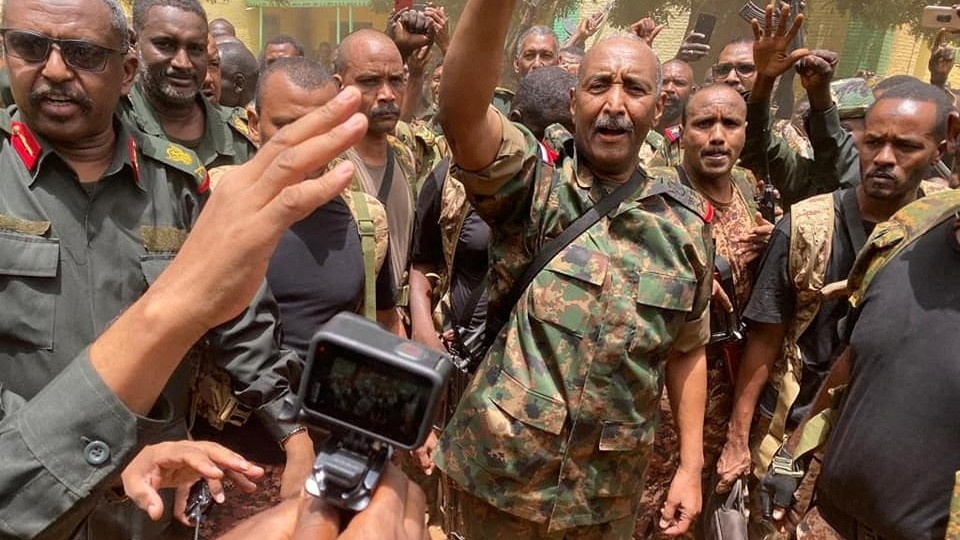
Sudan's army has suspended ceasefire discussions with the paramilitary Rapid Support Forces (RSF), leading US negotiators to question whether warring sides were "serious" about talks.
The armed forces, led by the country's de-facto leader Abdel Fattah al-Burhan, halted talks in the Saudi city of Jeddah on Wednesday after accusing the RSF of failing to implement the terms of an existing agreement.
Conflict broke out on 15 April between the RSF, headed by Mohamed Hamdan Dagalo, commonly known as Hemeti, and Burhan's forces after disputes over plans for the paramilitary force to be integrated into the army.
Several truces have been agreed since the fighting began, but both sides have repeatedly violated ceasefire agreements.
On 22 May, the warring forces agreed to a seven-day humanitarian truce after Saudi and US-sponsored talks in Jeddah.
New MEE newsletter: Jerusalem Dispatch
Sign up to get the latest insights and analysis on Israel-Palestine, alongside Turkey Unpacked and other MEE newsletters
Earlier this week, Washington and Riyadh mediators said the parties had agreed to extend the ceasefire by five days.
But there were reports of heavy fighting on Wednesday in Omdurman and Khartoum.
AFP reported artillery fire from army forces in northern and southern Khartoum, including the shelling of an RSF camp in al-Salha, which is the largest paramilitary base in the city.
At least 17 people were also killed and 106 injured after projectiles fell on a market south of the capital, according to the Sudanese doctors union.
On Wednesday, AFP also reported that at least 60 infants, toddlers, and older children had died over the past six weeks while trapped in harrowing conditions in an orphanage in Khartoum, as fighting continued around them.
Meanwhile, Cindy McCain, executive director of the UN World Food Programme, said that the organisation's food and assets had been looted in El Obaid, the capital of the North Kurdufan region.
"Our warehouses have come under attack - and food for 4.4 million people is at stake," McCain tweeted on Thursday. "It is unconscionable to steal from the hungry. This must stop."
US calls on both sides to get 'serious'
On Thursday, Washington said it would only mediate a truce between the warring sides once they got "serious".
"Once the forces make clear by their actions that they are serious about complying with the ceasefire, the United States and the Kingdom of Saudi Arabia are prepared to resume facilitation of the suspended discussions to find a negotiated solution to this conflict," a State Department spokesperson said.
They added that violations had led US mediators to "seriously question" whether the parties were ready to take action needed to "meet the obligations they have undertaken on behalf of the Sudanese people".
Analysts told Middle East Eye last month that truces were being repeatedly broken due to a lack of leverage from international actors and both sides thinking they can "seize objectives through fighting rather than negotiations".
On Wednesday, the RSF published a video on social media showing its number two, Abdelrahim Dagalo - Hemeti's brother - calling on army troops to desert and join the paramilitaries.
In the west of the country, fighting has intensified in Darfur, where around 1,000 people are believed to have been killed.
Over the weekend, Darfuri warlord-turned-governor Minni Minnawi suggested civilians should arm themselves, which critics said risked a violent escalation.
"I understand the call for people to defend themselves. We have seen this play out in Ukraine. But Darfur is not Ukraine," Cameron Hudson, a former CIA analyst, told MEE.
"There is no movement to train and arm Darfuri civilians. Armed civilians will only increase the bloodshed, draw more militias into the violence and complicate any potential solution."
Middle East Eye delivers independent and unrivalled coverage and analysis of the Middle East, North Africa and beyond. To learn more about republishing this content and the associated fees, please fill out this form. More about MEE can be found here.


